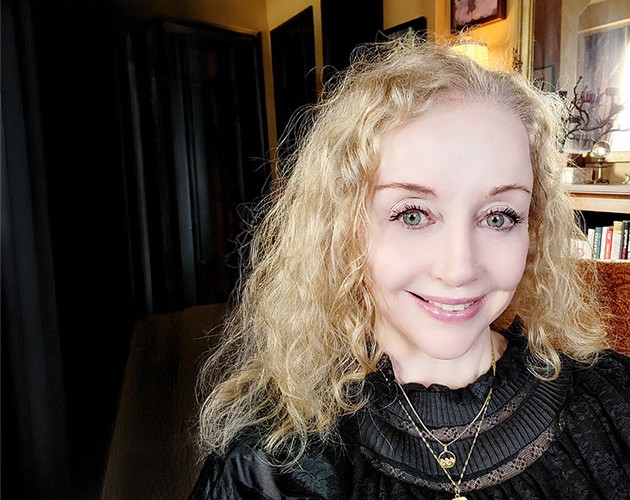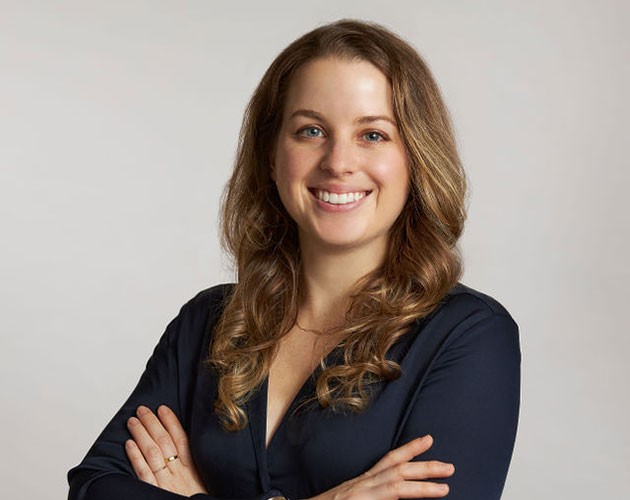Flying Into Endless Career Opportunities

Like so many others, when COVID-19 hit, Ryan Nichols took some time for self-introspection. His 20-year-old web development company had hit a plateau. Sure, he was continuing to provide the best service to his growing portfolio of business clients, but Ryan felt that there was more he could provide.
Looking back, his forays into creating student-first e-portfolios and then sports videos proved successful, so what was his next step?
“As a business owner,” Ryan tells me from his home office in Grand Haven, Mich., “I want to continue to always grow and expand. So I looked at my business, and said, ‘Okay, I’m really good at what I do, but how can I expand? What else can I do at this point in my career after hitting that plateau? My business philosophy has always been to be more versatile and well rounded, willing to consider working with just about anyone.”
But the answer to these questions proved elusive, so he took to the skies—quite literally—in search of an “a ha” moment for his next move. Pursuing a lifelong personal dream, Ryan began taking flight lessons. And for anyone who has braced the mighty winds coming off of Lake Michigan—as this Chicago native can attest to!—the weather in that area is not to be dismissed.
“I was shocked at how windy it is here off of Lake Michigan,” Ryan confirms. “You don’t realize what’s going on in the sky while you’re on the ground. Once you go up 3,000, 5,000 feet, the wind hits you from different directions and knots. So as I was taking off during one of my flight lessons, I realized this is insane—it's not for the faint of heart!”
While the plane was under a 100-hour inspection, he went back to square one on finding how to take his career and business to the next step.
Ryan took to YouTube to casually browse, mostly to glean information related to his personal interests—and that’s when his “a ha” moment came.
“I saw an ad for UC Berkeley Extension’s data science program and it just hit me—I should look into this. That’s where the record needle scratched off the record for me and I was instantly intrigued. The decision was almost instant. So I did some research on the website and everything checked out—it looked good. Data science is one of those areas where you want to get the basics and fundamentals down and to make sure you have your footing, before anything.
“So as always, the best thing to do to justify any impulsive or hasty decision is to do research,” Ryan says with a laugh. “Within just a few days, I had enough information to make an ‘educated decision’ and turn the idea into a reality. UC Berkeley Extension became a deeply considered idea, and I did take the time to make sure it offered what was most important and accurate to the real world. In my final stages of research, I compared the Extension program to Purdue, Michigan and UCLA—I chose your program hands-down.”
I looked at the program, and thought, “Okay, Berkeley's a leader and we know the education is high quality and has a tradition of forward-thinking excellence.”
You also have a personal draw to California, correct?
Yes. The brand recognition was instant—and I'm in Michigan. My sister lives in San Francisco and we love to visit. Also, one of my best friends lives in San Diego. Our family loves to visit California to explore, as we have lived in Grand Haven for 20-plus years raising our boys and allowing them to finish high school here.
Over the years, the connection to California has always been there. And so I looked at the program, and thought, “Okay, Berkeley's a leader and we know the education is high quality and has a tradition of forward-thinking excellence.”
You started out by completing the prereqs.
I was able to get JavaScript out of the way, which was a tough course. My instructor, Michael Kremer, is a real master of his trade. I didn't shy away from talking to him a lot because he is worth every minute of your time. He's the real deal, and I felt very honored and privileged right off the bat to be actually sitting in his presence and learning from him.
Even with 25 years of business experience, I knew I was learning from the person who actually wrote the material. When it comes to coding, Michael doesn't expect you to do it exactly one specific way he says; if you can actually do it your way, he'll still give you the credit because there's not always a right or wrong way. As long as it's somewhat bulletproof—it makes sense and runs smoothly.
I also fulfilled the stats prerequisite with Dieter Jurkat; he’s also a great educator. There's a level of care behind the Berkeley instructors that I am very impressed with. As a Midwesterner, we're pretty personable people and like to build relationships; we are typically community oriented.
For every class, the main thing I look at is the textbooks, and I have to say the materials have been excellent. If you're a serious student, you just have to be ready to roll up your sleeves and work extremely hard in every class. Don’t worry about the time; just open up the books and enjoy the learning experience.
You are three hours ahead of Pacific Time. Did that time difference affect your involvement in the online courses?
With being online, there were some late nights due to the time change. But it didn’t matter; it’s only one night per week and it doesn't interfere with anything else. If the class starts at 9 pm, the value proposition is enough to make this a worthwhile opportunity.
As a working professional, this is about taking everything being learned and putting it to use. The value is such that you're going to build a portfolio, you're going to be able to show some work that will mean something to a client or an employer.
You’re now taking Introduction to Databases and Introduction to SQL—really digging into the meat of the curriculum. How are those classes going?
So far they are going good. My database instructor, Andrew Oppel, is also highly published—and, yes, wrote the main textbooks, as well. I’m again thankful and humbled to have this opportunity.
With these classes, every chapter I'm spending a lot of time reading and thinking about how I can use it tomorrow with my work. For example, lessons learned in stats translate to SEO marketing, so I can use it to talk a little bit more creatively to my clients. As a working professional, this is about taking everything being learned and putting it to use. The value is such that you're going to build a portfolio, you're going to be able to show some work that will mean something to a client or an employer.
All of my classwork and material has been very challenging and highly educational. There’s no question that the program has been well designed and written.
As an older business professional, my achievement is more focused on ensuring my own mastery of the subjects—chapter by chapter—so that I can demonstrate the skills professionally with business clients. The classwork truly is a portfolio all within itself.
You have a great program, I recognized that right away when I researched it. I have just really enjoyed it.
The opportunities are seemingly endless. I’m researching the industry while considering potentially consulting with clients or also working for a company. The program is long enough to give you plenty of time to learn and explore the various direction(s) you can go.
I’m excited to talk with you again when you complete the certificate. In the meantime, can you crystal-ball how this learning will fit in with revamping your business?
I'm giving myself 12 to 13 months to finish the certificate.
I think some people come into the certificate wanting to get a full-time data scientist job, and I can't say that that's exactly what I would do. I might look for consulting projects—there's so many things you can do with skills in data science. I really just want to earn the education first and then continue to do research over the next six months because this is a dynamic field. I didn't realize how many companies were looking for this type of thing and it has opened my eyes.
The opportunities are seemingly endless. I’m researching the industry while considering potentially consulting with clients or also working for a company. The program is long enough to give you plenty of time to learn and explore the various direction(s) you can go.
Being a Midwest homebody, I want to build a lifelong relationship with Berkeley, and this part of the journey is where I’ll take the time to make as many new friends and connections as possible. Maybe it will be a data science position in the aviation industry. The ideas are all in the works.
We have high expectations of our children doing really well in school—and now I have to walk the walk. My kids are watching me and they're getting excited, too. The family is 100-percent behind this—it's not just for me, this is for the family.
Any advice for someone about to start the courses?
If you want to start reasonably into this, one class at a time would probably be best, just to get yourself established. Taking the time to get familiar with the structure and get into a rhythm is really important. The classes are doable if you make sure you stay consistent with the time. You have to put the time in every day—from part of your breakfast, afternoon, to after dinner for a few hours. Just don’t limit yourself as to what or time—be personally flexible to stay consistent.
I can say, honestly, that I'm already thinking this isn't all I'm going to do with UC Berkeley Extension—I'm almost sad that there's only seven classes!


